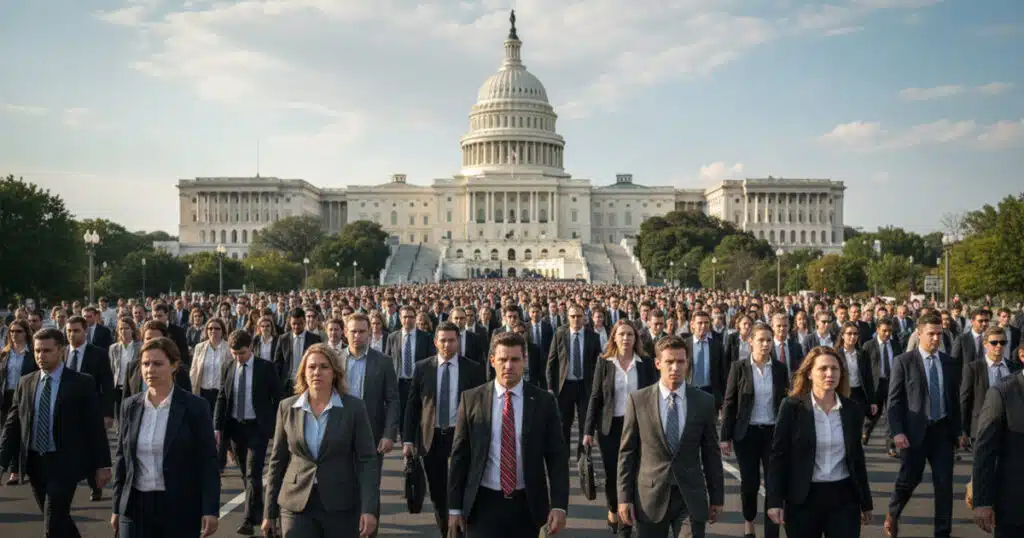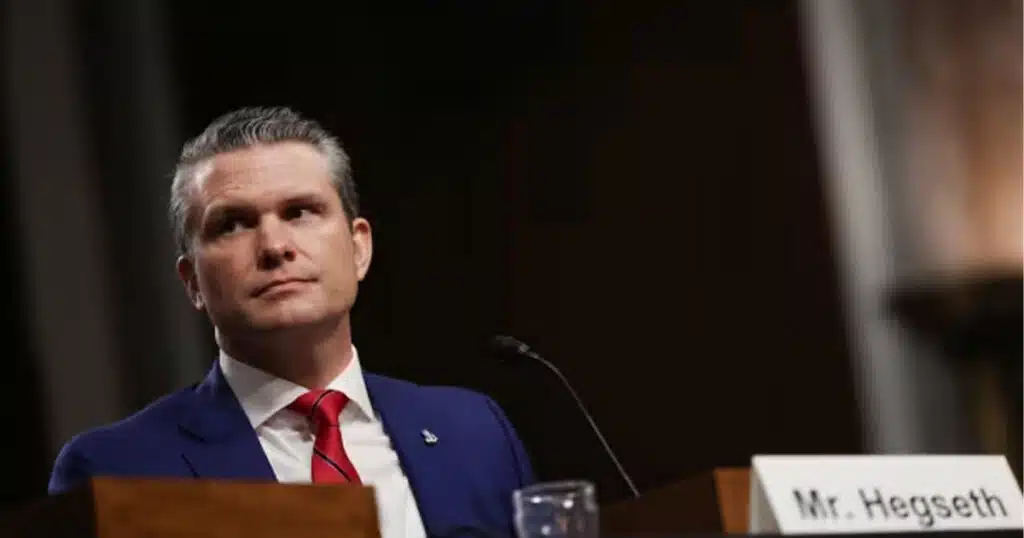
Is All Politics Really Local in California’s Redistricting Test?
California is about to test whether two timeworn political maxims still ring true in 2025.
The first is the tried-and-true “All politics is local,” a phrase dating as far back as 1932 and most closely associated to former House Speaker Tip O’Neill. The second, known as “Fenno’s paradox,” goes something like this: People generally disapprove of Congress as a whole but often support – even have great affinity for – their own member of Congress.
If all politics really is local even in the big state of California, and most voters want to keep the congressmen or women they already have, then the GOP could prevail in its effort to defeat Proposition 50, California Gov. Newsom’s mid-decade gerrymandering drive aimed at eliminating four to six GOP congressional seats.
Newsom and other Democratic proponents readily admit the push for redistricting is an effort to “fight fire with fire” and counter President Trump, after Texas state legislators adopted a congressional district map created to make it easier for Republicans to win five more seats in the U.S. House. The Texas mid-decade redistricting is an unabashed effort to insulate the House Republicans from losing majority control and prevent Trump from being impeached in 2027.
There are two significant differences between the Texas and California gerrymandering efforts. California’s constitution, unlike the Texas constitution, prohibits mid-decade redistricting. And in California, voters in 2008 approved transferring the power to redraw congressional lines from the Democratic-controlled state legislature to an independent “citizens” commission.
Newsom himself has argued that what Texas is doing is wrong but has justified his action as a way to counter the Texas redistricting move, even as he admits that it’s a power grab that overturns California’s voter-approved independent redistricting process.
In an off-year election special election with likely low turnout, multiple recent polls show Newsom’s side with a slight advantage. The “yes on Prop 50” side also has a nearly two-to-one fundraising advantage, with both sides burning through tens of millions of dollars at a furious pace.
Charlie Munger Jr. has donated $30 million of his own funds to the Protect Voters First, an anti-Prop 50 group aimed at messaging for independents and ambivalent Democrats. Stop Sacramento’s Power Grab, run by former California GOP Chair Jessica Millan Patterson, with former House Speaker Kevin McCarthy’s support, has raised just more than $7 million.
The Democrats’ primary Yes on 50 has raked in more than twice as much, with billionaire far-left donor George Soros contributing $10 million in late September. The House Majority PAC, the group backing Democratic candidates for Congress, donated $7.6 million, with the California Teachers Association pouring in $3 million more and the state’s nurses’ union adding another $2.5 million.
There are only 35 days before voting closes to determine the fate of Newsom’s new gerrymandered congressional district maps. With mail-in ballots in the special election already being sent to voters, Newsom’s pro-redistricting forces are dominating the television and digital ad wars with a national message: Oppose Trump and counter his Texas redistricting efforts by backing the measure.
For Newsom, the political gamble has a potential payoff windfall and relatively no downsides. If the White House hopeful pulls off a win and denies House Republicans seats in Congress, Newsom can claim a major partisan victory even before the 2028 Democratic presidential primary begins. If he loses, many Democrats will give him credit for trying, and for bringing the fight to Trump.
Newsom’s side has enlisted far-left national Democratic figures, such as New York Rep. Alexandria Ocasio-Cortez and Massachusetts Sen. Elizabeth Warren, to appear in ads to rev up the Democratic base and drive up turn-out.
Republicans in recent days have responded by going hyper-local – focusing on county-based initiatives while micro-targeting voters they need to turn out in order to win.
They have former Gov. Arnold Schwarzenegger, the only Republican to win statewide office in California since 2006, on their side. The former Hollywood icon and world-famous body builder led the fight for the independent redistricting commission in 2011.
In recent weeks, Schwarzenegger has called Newsom’s proposal “insane” and argued that it dismantles the democratic principles embodied in the outside redistricting body he pushed to create. Just how effective an aging former Hollywood superstar and centrist Republican can be for the effort remains to be seen.
Jessica Millan Patterson, who previously chaired the California Republican Party and now leads Stop Sacramento’s Power Grab, argues her side wins on substance. California voters in 2008 and in 2010 overwhelming voted in favor of taking the job of drawing congressional districts away from politicians and handing it to an independent redistricting commission, she said.
“Californians have been very clear – they don’t want politicians making backroom deals with D.C. lobbyists to draw maps where they get to choose their constituents, pick winners and losers,” Millan Patterson tells RealClearPolitics. “The people that lose in all of it are Californians. They know it’s better when people have this power.”
Millan Patterson also says polling data shows that 84% of Californians are well aware of the issues at stake, which she believes benefits the opposition.
“That’s huge for us,” she argues. “So, we’re focused on who we can we persuade. It’s a very different narrative than the Democratic narrative. They want to make this a partisan issue, and it’s simply not a partisan issue. This is about good government.”
On Tuesday, the Yes on 50 proponents experienced a procedural setback. California Secretary of State Shirley Weber announced that the mail-in ballot already sent to millions of California voters included a labeling error in its Voter Information Guide. The proposed new Congressional District 27 was mistakenly labeled District 22.
Weber pledged to send out correction postcards to all registered voters who received the mislabeled ballots, adding even more costs to the estimated $300 million the special election is costing California taxpayers.
“Will Secretary Weber disclose the price tag of this correction, or will we have to wait for that information to leak like the original cost,” Stop Sacramento’s Power Grab said in a statement late Tuesday. “Prop 50 is a rushed, reckless power grab that blew through safeguards and opened the door to critical errors. Now the integrity of California’s voting process is in questions, sacrificed for the sake of political gain.”
Thirty-seven out of 58 of the state’s county sheriffs, including those from Orange, Riverside, and San Bernardino counties, this week announced they would oppose Prop 50, Newsom’s ballot proposal to get rid of a citizen-led redistricting commission to draw the lines to best benefit Democratic incumbents and challengers. In addition, numerous GOP-controlled city councils across the state are locking arms to pass resolutions opposing Newsom’s gerrymandering plan.
“As elected county sheriffs, we know that our system of government depends on public trust,” the sheriffs wrote in a joint statement. “That trust is built through transparency, fairness, and adherences to the rule of law. Conversely, trust is undermined when public officials take actions designed to enhance their own power at the expense of the people’s will.”
“This is why we oppose Proposition 50, the ballot initiative proposing to dismantle the work of the voters’ Independent Redistricting Commission,” they explained.
Lodi, a city of about 70,000 in the middle of California’s agricultural Central Valley, last month was one of the first of several city councils to formally approve a resolution opposing Proposition 50. If the ballot initiative passes Nov. 4, the redrawn congressional maps would carve the city of Lodi into three districts.
The city currently sits entirely within Congressional District 9, but the proposed redrawing would split the city, which Democratic Rep. Josh Harder, who currently represents Lodi, is on the record opposing.
“I absolutely believe Lodi should be kept whole,” Harder told ABC10, though he deferred to all California voters on whether the new maps should be adopted or not.
Los Angeles’ 15-member city council, which has jurisdiction over the second largest city in the country, 501 square miles of land, recently voted on a resolution backing Proposition 50.
Garry South, a longtime California Democratic political consultant, said the GOP’s message is too complicated a sell while Newsom’s is simple: Oppose Trump at all costs.
“Prop. 50 will pass easily,” he predicted in an interview with RCP. “Voting to preserve something voters passed 15 years ago that few remember, and even fewer have any understanding of how the citizens redistricting process works, or care.”
Only a tiny percentage of California voters are aware of the current congressional district lines, which don’t have an impact on their daily lives, South added.
“The proponents’ arguments are clear and direct: Screw Trump and Texas too,” he said. “It was never a question of which one of these pitches would succeed in California. The fact that the money hasn’t come in on the no side tells you they know it too.”
The new maps target several swing or GOP-leaning seats in Orange County, redrawing them to ensure they are majority Democratic. Some of the new district lines appear to slice and dice some cities, including Newport Beach.
Several cities in Orange County, traditionally a conservative stronghold, have passed their own city council resolutions opposing the statewide redistricting efforts. Last month, city council members in Newport Beach, Orange, and Westminster all adopted separate resolutions opposing the November special election. Irvine’s city council, however, voted down a similar proposal along party lines.
Will O’Neil, the Orange County Republican Party chairman, aims to have Orange County voters run up the “no” on the Prop 50 score to offset bluer regions across the state. Already, he and his team have helped persuade 130 local elected officials to publicly oppose Prop 50, he said.
The Orange County GOP and its volunteers also were the first county to venture out to knock on doors for multiple weekends. O’Neill also said he’s planning to enlist 110,000 volunteers to write notes on postcards to send throughout the county.
“Everyone has a lane in this [fight], and ours is trying to turn out Republicans, and so our messaging is geared entirely to Republicans,” he said.
“There’s a lot of pretty solid opposition to Prop 50 in Orange County,” O’Neill added. “I think a lot of the opposition effort has been moved to the county parties, and so we’re doing everything we can to step up.”
This article was originally published by RealClearPolitics and made available via RealClearWire.



